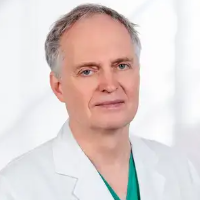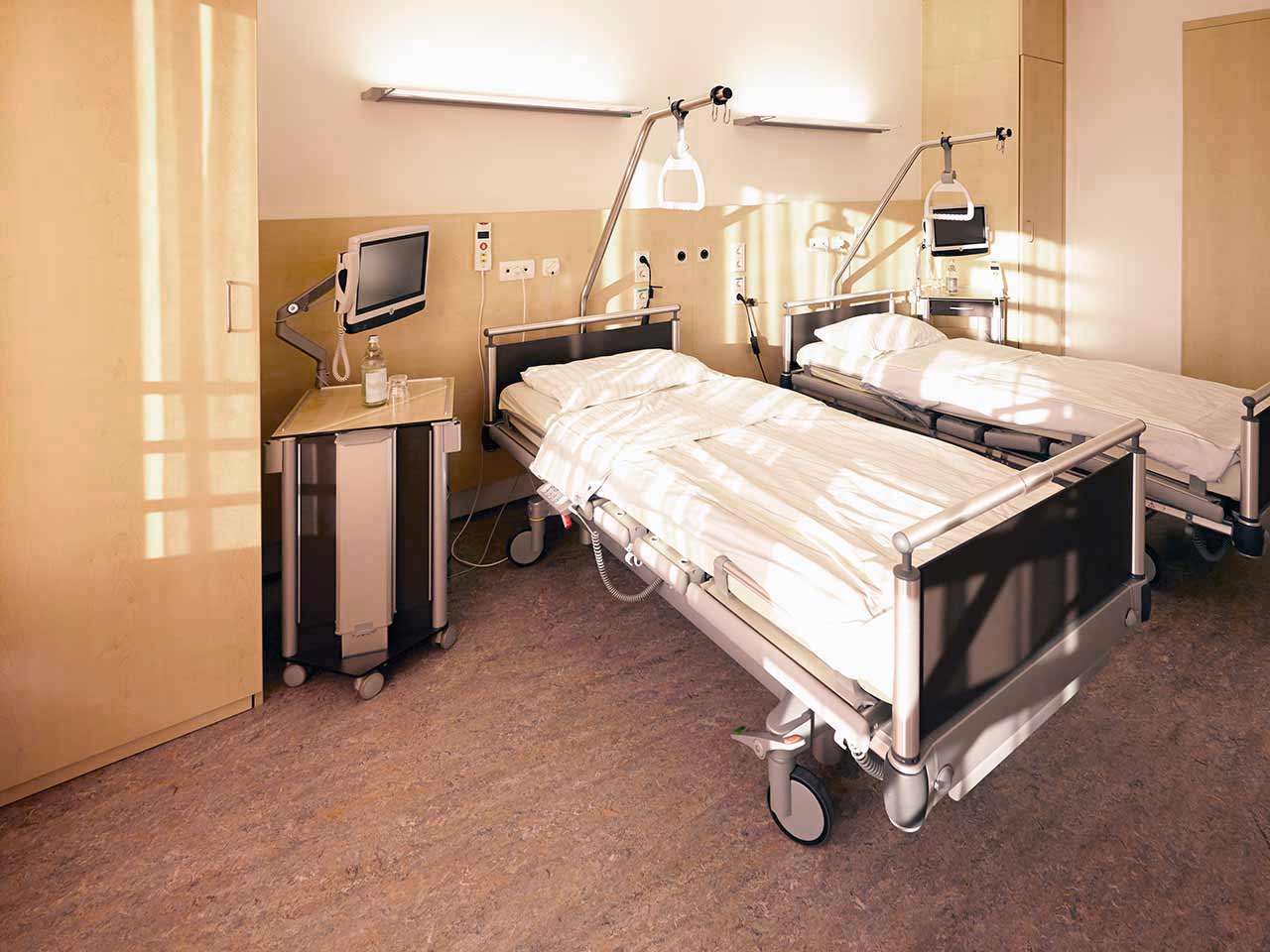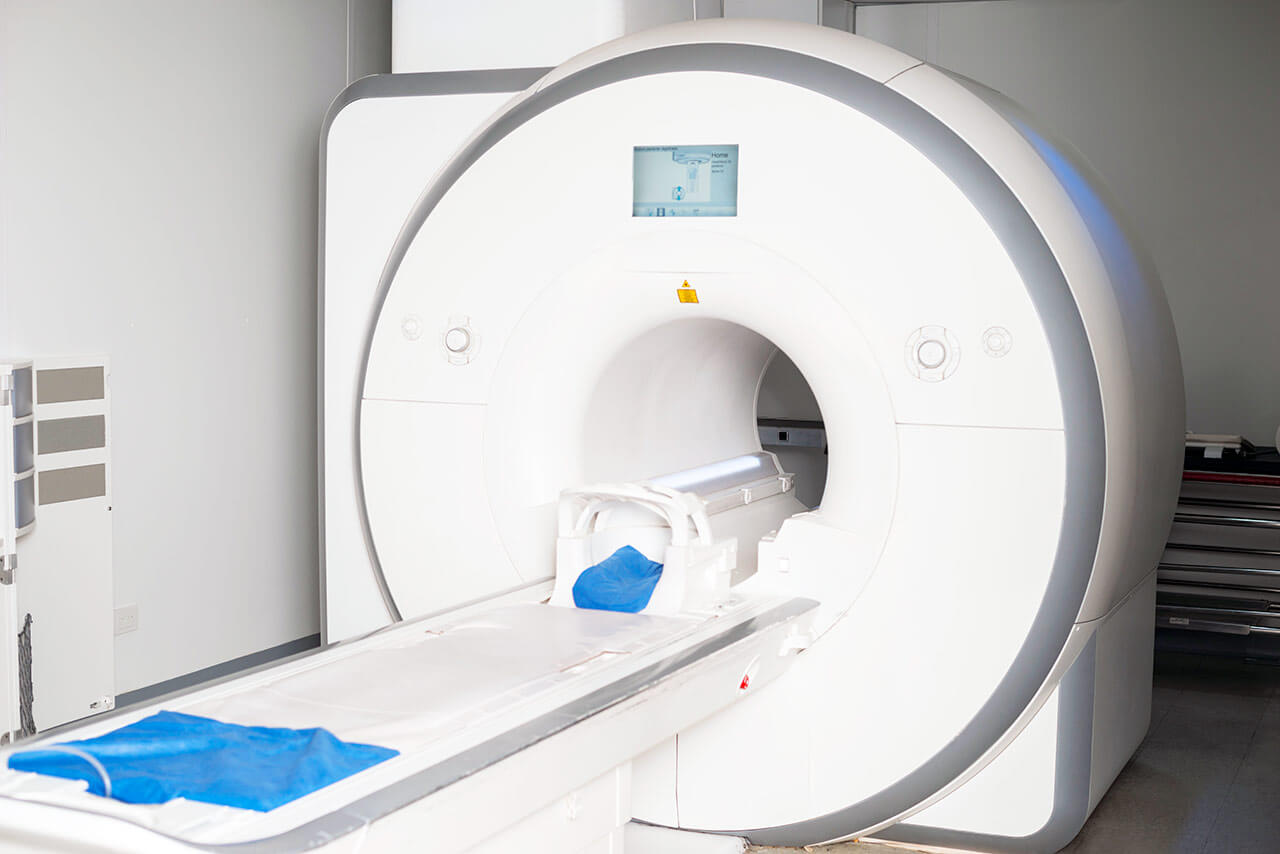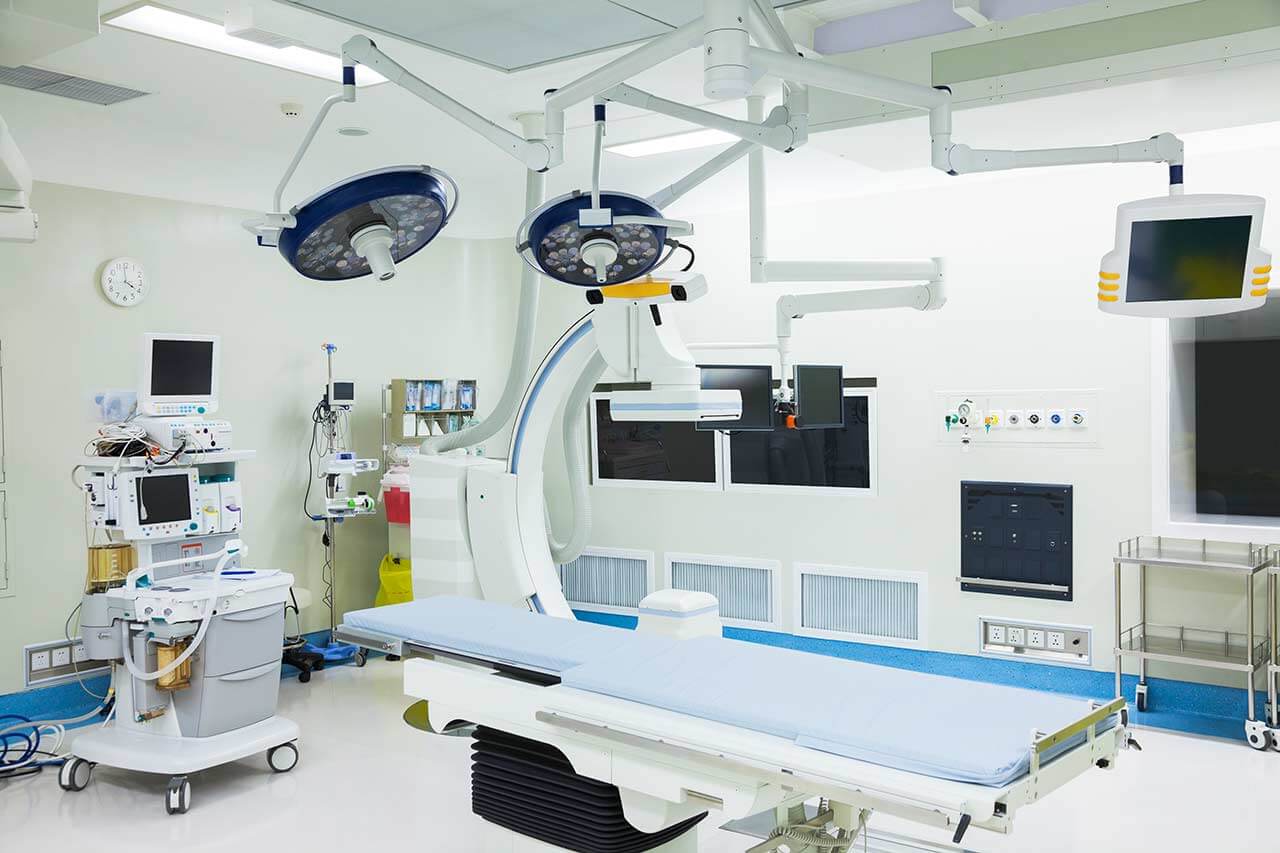
The program includes:
- Initial presentation in the clinic
- clinical history taking
- physical examination
- review of medical records
- cardiological examination
- laboratory tests:
- complete blood count
- general urine analysis
- biochemical analysis of blood
- TSH-basal, fT3, fT4
- indicators of inflammation
- indicators blood coagulation
- measurement of arterial blood pressure
- electrocardiogram
- holter monitoring (24h)
- transesophageal echocardiography
- cardiac catheterization
- preoperative care
- replacement of aortic valve
- symptomatic treatment
- control examinations
- the cost of essential medicines and materials
- nursing services
- full hospital accommodation
- explanation of future recommendations
Required documents
- Medical records
- Echocardiography (if available)
Service
You may also book:
 BookingHealth Price from:
BookingHealth Price from:
About the department
The Department of Adult and Pediatric Cardiac Surgery at the Nuremberg Hospital offers the full range of cardiovascular surgical interventions, with the exception of a heart transplant. The department's surgeons specialize in heart valve repair and replacement surgery, coronary artery bypass grafting, and surgery to implant a left ventricular assist device (LVAD) for chronic heart failure. Many operations in the department are performed using minimally invasive techniques without a thoracotomy. Cardiac interventions are performed by highly qualified physicians who have successful clinical experience and have saved thousands of lives. State-of-the-art equipment in the operating rooms and excellent professional skills of surgeons in the use of sparing surgical techniques ensure successful heart interventions even in elderly patients. The department houses 3 new operating rooms, including a hybrid operating room with HD imaging diagnostics and cardiac angiography for arrhythmia treatment. The department's specialists annually treat more than 1,100 patients, most of whom receive medical care on an inpatient basis. The department is headed by Prof. Dr. med. Theodor Fischlein.
The department's cardiac surgeons regularly treat patients with heart valve stenosis and insufficiency, including the mitral, aortic, and tricuspid valves. The mitral and aortic valves are most often affected. At the diagnostic stage, a patient with suspected heart valve pathology undergoes cardiac ultrasound examinations, followed by additional catheter-based diagnostic procedures. With all the diagnostic data available, cardiac surgeons select the optimal type of surgical treatment. The department performs both classic open heart valve surgery and innovative minimally invasive interventions. With appropriate clinical indications, preference is always given to minimally traumatic surgery. During such operations, a surgical approach is provided through incisions of 5-7 cm in the intercostal space, avoiding the need for a traumatic chest opening. The use of minimally invasive surgical techniques during heart valve surgery contributes to the absence of pain in the postoperative period, lowers the risk of blood loss, and provides patients with a good aesthetic result (minimal scarring). Following such operations, patients recover faster and return to their normal lives. The department performs minimally invasive surgery for aortic, mitral, and tricuspid valve repair and replacement.
Coronary artery bypass grafting (CABG) is also one of the most highly demanded operations in the department's clinical practice. Patients with coronary heart disease may be indicated for CABG. The aim of this intervention is to restore blood flow in the coronary arteries in cases of stenosis or occlusion, thereby ensuring normal myocardial blood supply. Coronary artery bypass grafting is the last-line treatment. The department's cardiac surgeons resort to it only in cases where effective drug therapy and endovascular coronary stent implantation are impossible. During the preparation for surgery, patients have to undergo a number of examinations, the most important of which are electrocardiography, echocardiography (cardiac ultrasound), coronarography, and laboratory tests. As for the technique of coronary artery bypass grafting, the patients are offered three options, such as classical surgery with chest opening, off-pump coronary artery bypass (OPCAB), and minimally invasive direct coronary artery bypass (MIDCAB). The classical type of operation involves performing the intervention under general anesthesia with chest opening and with the use of a heart-lung machine. Cardiac surgeons form a vascular bypass from the thoracic artery or leg veins. Depending on the number of narrowings in the coronary arteries, several bypasses can be created simultaneously. When using the OPCAB technique, cardiac surgeons make an incision in the chest to have a surgical approach, but during the operation they do not use a heart-lung machine, which means that surgical manipulations for creating bypass routes to normalize myocardial blood supply are performed on the beating heart. Minimally invasive direct coronary artery bypass (MIDCAB) is the most sparing option for treating coronary artery disease. This surgery is, however, advisable only in patients with stenosis or occlusion of the coronary blood vessels in the anterior heart wall. The main advantage of the MIDCAB technique is that instead of a traumatic chest opening, surgeons approach the heart through a small skin incision between the ribs on the left side of the chest. The department's cardiac surgeons regularly perform various types of coronary artery bypass grafting, so patients can be sure that they will receive the best possible treatment results.
The department's specialists have vast experience implanting a left ventricular assist device (LVAD). This device is an artificial heart and is indicated for patients with chronic heart failure over the age of 65. LVAD implantation restores normal heart function, prolongs life, and improves the quality of life. The implantation of the left ventricular assist device (LVAD) is performed under general anesthesia using classic open surgical techniques. The duration of the intervention is about 4-6 hours. Patients recover quite quickly after such surgery and can return to their normal lives within a few weeks. It is worth noting that the department is known as one of the best medical centers in Germany, specializing in the treatment of acute and chronic heart failure.
The department's key clinical focuses include:
- Surgery for heart valve stenosis and insufficiency (minimally invasive and classical surgical techniques)
- Aortic valve repair and replacement surgery
- Mitral valve repair and replacement surgery
- Tricuspid valve repair and replacement surgery
- Coronary artery bypass grafting for coronary heart disease
- Coronary artery bypass grafting using classical open techniques and a heart-lung machine
- Off-pump coronary artery bypass grafting (OPCAB)
- Minimally invasive direct coronary artery bypass (MIDCAB)
- Implantation of a left ventricular assist device (LVAD) for chronic heart failure
- Surgery for aortic aneurysms
- Minimally invasive surgery to implant a biventricular epicardial pacemaker
- Minimally invasive surgery to close an atrial septal defect
- Other surgical options
Curriculum vitae
Higher Education
- 1978 - 1985 Human Medicine and Biology studies, University of Vienna.
- 1985 Doctorate, University of Vienna.
Professional Career
- 1985 - 1991 Research Fellow, Institute of Anatomy, University of Vienna (highly specialized anatomy training).
- 01.09.1985 - 30.11.1985 Internship at the Heeresspital Wien, Vienna.
- 01.12.1985 - 28.02.1987 Assistant Physician, Institute of Anatomy, University of Vienna.
- 30.06.1986 - 28.02.1987 Physician, Department of Surgery, University Hospital Vienna.
- 01.03.1987 - 30.09.1991 Assistant Physician, Department of Cardiothoracic Surgery, and rotation in General Surgery.
- 1991 Board certification in Surgery, Austrian Medical Association.
- 01.10.1991 - 28.02.1997 Research Fellow (since 01.03.1995, Senior Physician), Department of Cardiac Surgery, University Hospital of Ludwig Maximilian University of Munich; Internship abroad at Stanford University, California, USA, Department of Cardiovascular Surgery.
- 1994 Board сertification in Surgery, Bavarian State Medical Association.
- 1996 Habilitation in Cardiac Surgery, Ludwig Maximilian University of Munich.
- 01.03.1997 - 30.04.2000 Managing Senior Physician, Department of Cardiothoracic Surgery, University Hospital Frankfurt.
- 01.05.2000 C3 Professor (Extraordinary Professor for Cardiac Surgery), University of Erlangen-Nuremberg; until 28.02.2007, Representative of the Director of the Hospital and Managing Senior Physician, as well as Head of the Transplant Program.
- Since 01.03.2007 Head Physician, Department of Adult and Pediatric Cardiac Surgery, Nuremberg Hospital.
- Since 2014 Professor for Cardiac Surgery, Paracelsus Private Medical University in Nuremberg.
Memberships in Professional Societies
- German Society for Thoracic and Cardiovascular Surgery.
- German Society for Cardiology, Cardiovascular Research.
- Society of Thoracic Surgeons.
- European Association for Cardio-Thoracic Surgery.
- American Association for Thoracic Surgery.
- Austrian Society for Thoracic and Cardiac Surgery.
- International Society for Applied Cardiovascular Biology (Member of the Executive and Advisory Boards).
Photo of the doctor: (c) Klinikum Nürnberg
About hospital
According to the reputable Focus magazine, the Nuremberg Hospital ranks among the top German medical facilities!
The hospital is one of the largest, highly specialized medical centers in Europe and positions itself as the maximum care hospital. The healthcare facility is an academic hospital of the Paracelsus Medical University in Nuremberg. It houses 42 departments, institutes, and highly specialized centers focusing on various medical fields. All the hospital's employees work hand in hand for the benefit of their patients. The specialists strive to provide top-class medical care for every patient. Moreover, the medical team always shows a humane attitude and understanding towards the patient's life situation, making every effort to support them during the entire therapeutic process.
The total number of beds in the hospital is 2,233. The medical team consists of more than 8,400 employees, including many world-famous doctors and professors who had their clinical training at the best medical facilities in Germany, other European countries, and the USA. The hospital admits more than 100,000 inpatients and more than 170,000 outpatients annually. The number of patients who come to the hospital steadily increases every year, which is the best confirmation of its high standards and outstanding treatment results.
The cornerstone of successful clinical practice is state-of-the-art technical infrastructure. The hospital offers its patients innovative technologies such as the Da Vinci surgical system, devices for stereotactic procedures, intraoperative radiation therapy, angiography, PET CT devices, high-intensity focused ultrasound, 64-slice CT scanners, and other advanced medical devices. The combination of cutting-edge technical facilities and the high competence of the physicians allows for the provision of effective treatment even in the most complex cases.
The Nuremberg Hospital is undoubtedly one of Germany's leading medical facilities, where patients benefit from modern infrastructure, precise diagnostics, effective treatment, and responsive care.
Photo: (с) depositphotos
Accommodation in hospital
Patients rooms
The patients at the Nuremberg Hospital live in comfortable single and double rooms. Each patient room is equipped with an ensuite bathroom with a shower and a toilet. Standard rooms include an automatically adjustable bed, a bedside table, a wardrobe for storing clothes, a table and chairs for receiving visitors, a TV, and a radio. The hospital also offers Wi-Fi.
If desired, patients can live in enhanced-comfort rooms. Such patient rooms are more spacious, and their furnishings correspond to the level of an upscale hotel.
Meals and Menus
The patients at the hospital are offered tasty and balanced meals three times a day: breakfast, lunch, and dinner. The patients have a daily choice of three dishes for lunch and dinner, while breakfast is served as a buffet.
If, for some reason, you do not eat all foods, you will be offered an individual menu. Please inform the medical staff about your food preferences prior to treatment.
Further details
Standard rooms include:
Accompanying person
Your accompanying person may stay with you in your patient room or at the hotel of your choice during the inpatient program.
Hotel
You may stay at the hotel of your choice during the outpatient program. Our managers will support you for selecting the best option.





